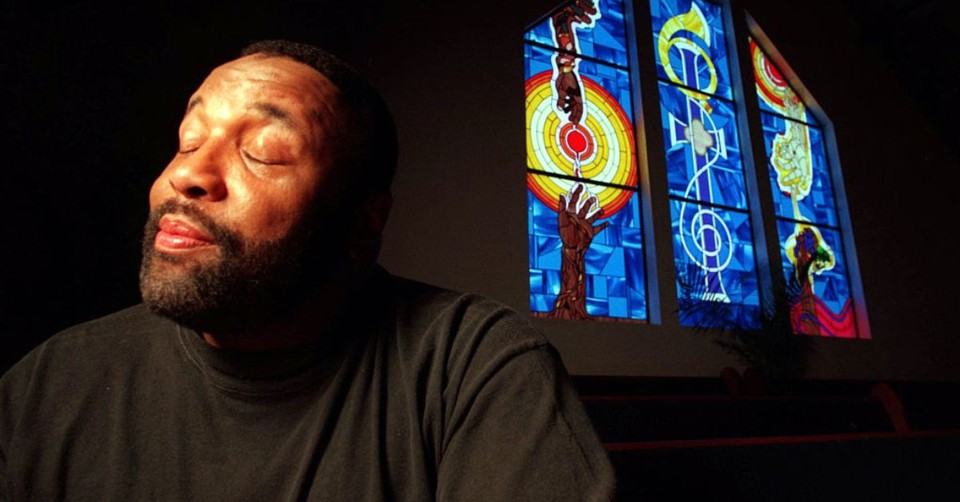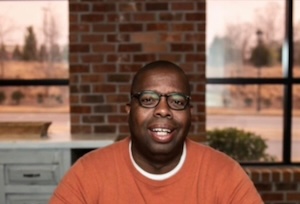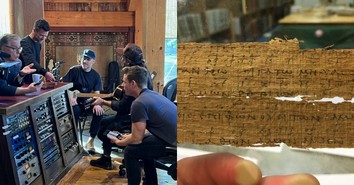New Biography Highlights Andraé Crouch’s Musical Genius and Ministry

It's been ten years since the death of Andraé Crouch, and for authors, Robert F. Darden and Stephen M. Newby, working on their new biography on the life of Andraé Crouch Soon and Very Soon took them nine years to research and write. For both authors, the process was one of a lifetime and something that, when they both look back on it, they consider an honor to have worked on for almost a decade. Newby holds the Lev. H Pirchard Endowed chair in the study of Black Worship as a professor of music at Baylor University, and Darden is an emeritus professor of journalism at Baylor.
Crosswalk Headlines: How long did the research and writing process take?
Robert Darden/Stephen Newby: We spent nine years interviewing over two hundred people for the project.
CWH: Andraé Crouch was close to his sister Sandra; did you get a chance to interview her?
Robert/Stephen: Yes, she found out that we were serious, we weren't interested in dirt, and that we both wanted to tell Andraé's story through historical and journalistic lenses.
CWH: You mention Crouch's manager, Bill Crouch, who spent a lot of time with him. What was that interaction like when you interviewed him?
Robert/Stephen: Bill Maxwell and Bill Crouch had a greater influence on his musical life; the two of them together helped shape Andraé's raw talent, which would have him go on 48-hour songwriting binges. He would get in the studio and spend 48-hour binges on a single song. Andraé needed these two people to help him; he was so mega-focused, he could be obsessed, and these two people gave him the parameters to be the great creative artist that he was."
CWH: How did you deal with his personal flaws, for example, when he was arrested on cocaine charges?
Robert/Stephen: Crouch was arrested for possessing cocaine, which we believe had very little evidence due to the people that Crouch would allow to stay at his home, from homeless people to recovering drug addicts. His manager never saw any drug use, and they were together all the time. The police report and the newspaper reports were on the front page; however, by the second day of the story, they dropped the charges, saying there was insufficient evidence that was buried on page 38 at the bottom of a column of the newspaper that featured it the day earlier on the front page. It was too late by then, and we shot our wounded in the Christian community.
CWH: What did the interviews reveal about his pastoral moments?
Robert/Stephen: I'm going to say two things with the interview people. We knew we were getting the truth and the real deal because people were very transparent with us. And there were these pastoral moments. One of the pastoral moments that Newby refers to is Crouch's start of the addicts choir, which was comprised of people who were marginalized by the church.
One thing that was incredibly remarkable for me was that every time Bob and I would hit the laboratory, we would discover together, separately, and together. I think for me just seeing how he was shaped and formed as a composer while he was with the addict's choir was incredibly remarkable.
CWH: You mention in the book that Crouch's life is out of balance. Can you describe that?
Robert/Stephen: Pushing those cultural norms is something that Crouch seemed to do through his music, along with embracing people that many in the church chose not to do ministry with. However, Crouch's lifestyle seemed out of balance due to his love for music. He was just so prolific he worked all night, every night. He would sleep late, get up, and go to the studio, where he recorded all the time. Crouch had a horrible lifestyle; that's what killed him so young. He didn't eat right and didn't sleep right. The music and message consumed him.
CWH: In the end, what did the two of you walk away with after researching and writing about his life?
Robert/ Stephen: Crouch was as close to singing the Bible as anybody we've ever met.
Photo Credit: ©Getty Images/Brian Vander Brug/Contributor

Originally published April 17, 2025.





